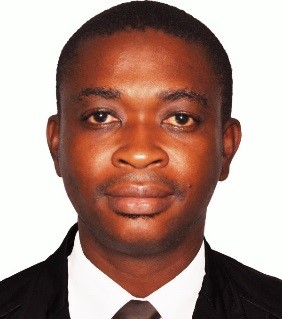The list of countries reporting cases of Omicron is still increasing. CNN reported last week that Poland and Niger were among four new additions to the US Centers for Disease Control and Prevention’s “very high” risk travel category on Tuesday. Papua New Guinea in the southwestern Pacific and Trinidad and Tobago in the southern Caribbean were also added to Level 4.
Niger moved from low-risk Level 1 to Level 4 last week Tuesday, a move the CDC said was because of case counts and not the Omicron variant detected in southern Africa. The other three countries moved up from Level 3, “high” risk. This is a big blow to the tourism recovery we were all looking forward too.
The world is battling with seeing the end of COVID-19 especially with the introduction of the vaccines. This comes after CNN reported the fact that many of the world’s richest countries have spent the past year hoarding coronavirus vaccines, buying up enough doses to vaccinate their populations several times over and consistently failing to deliver on their promises to share doses with the developing world.
The World Health Organization said the approach was “self-defeating” and “immoral.” It is understood that the new and potentially more transmissible variant of the virus which was first discovered on the African continent is likely to have been attributed to the low vaccination on the continent.
The new variant, known as Omicron, was first identified in South Africa, although it is unclear whether it originated there or whether it was brought into the country from elsewhere in the region. What scientists do know is that the virus is much more likely to mutate in places where vaccination is low and transmission high.
“It has probably emerged in another country and has been detected in South Africa, which has very, very good genomic sequencing capacity and capability … it might well be a consequence of an outbreak, probably in some parts of sub-Saharan Africa, where there’s not a huge amount of genomic surveillance going on and vaccination rate is low,” Michael Head, a senior research fellow in global health at the University of Southampton, told CNN in a phone interview.
Head said the emergence of new variants was “a natural consequence of being too slow to vaccinate the world.”
“We still have large unvaccinated populations, like we have across sub-Saharan Africa, and these are susceptible to big outbreaks,” he said.
New variants of the virus that have caused problems in the past, Head added, have all emerged from places that experienced big, uncontrolled outbreaks, such as when the Alpha variant was first detected in the UK last December, or the Delta variant that was first found in India in February.
The Omicron variant is already spreading across the world — as of Sunday, it has been detected in a number of countries including South Africa, Botswana, Australia, the UK, Germany, Italy and Belgium. Many countries across the world have reacted to the news that South African scientists discovered the new variant by swiftly shutting their borders to travelers coming from countries in the region, including South Africa, Botswana, Zimbabwe, Namibia, Lesotho, Eswatini, Mozambique and Malawi.
But scientists and public health experts and advocates have warned that the huge gap between vaccination rates in the developed and developing world is likely to blame.
Jeremy Farrar, the director of the Wellcome Trust, a health research charity, said the new variant shows why the world needs to ensure more equitable access to vaccines and other public health tools.
“New variants are a reminder, if we needed it, that the pandemic is far from over,” he said on Twitter. “Inequity is what will extend the pandemic.”
According to the World Health Organization (WHO), only 7.5% of people in low-income countries have received at least one dose of the coronavirus vaccine. Across the eight countries most affected by the travel bans related to the Omicron variant, the proportion of populations that have had at least one vaccine dose ranges from 5.6% in Malawi to 37% in Botswana.
Meanwhile, 63.9% of people in high-income countries have received at least one shot, according to WHO. In both the European Union and the United States, around 70% of people have received at least one shot, according to the European Centre for Disease Prevention and Control and the US Centers for Disease Control and Prevention.
While there are many reasons why a country might have a lower inoculation rate — vaccine hesitancy remains a big problem in many countries, including South Africa — Head said the lack of access to doses is a major problem.
“One contribution to this is the richer countries hoarding doses above and beyond of what we actually need and not following through on commitments to donate vaccines to COVAX or directly to countries themselves,” he said.
COVAX is WHO’s global vaccine-sharing program. As of last month, 537 million doses have been shipped through the scheme to 144 countries — a small proportion of the 7.9 billion doses have been administered globally so far.
WHO’s target of having 40% of population of all countries vaccinated by the end of 2021 and 70% by the middle of next year appears to be out of reach, with only two African countries — Morocco and Tunisia — currently on track to reach the goal.
Writing in The Guardian newspaper on Saturday, Gordon Brown, WHO’s ambassador for global health financing and former UK Prime Minister, said that the world’s “failure to put vaccines into the arms of people in the developing world is now coming back to haunt us. We were forewarned — and yet here we are.”
“In the absence of mass vaccination, COVID is not only spreading uninhibited among unprotected people but is mutating, with new variants emerging out of the poorest countries and now threatening to unleash themselves on even fully vaccinated people in the richest countries of the world,” he wrote.
Head agreed with that assessment. “It’s totally coming back to bite us … until the pandemic is settled … and that involves vaccinating every corner of the world, then it may well rebound, we saw that with Delta in India.”
And Dr. Richard Lessells, an infectious diseases specialist at the University of KwaZulu-Natal in Durban, South Africa, said the reaction of the rich world to the news that South African scientists discovered a new variant was an example of its own selfishness.
“What I found disgusting and really distressing … was not just the travel ban being implemented by the UK and Europe but that that was the only reaction, or the strongest reaction.
“There was no word of support that they’re going to offer to African countries to help us control the pandemic and particularly no mention of addressing this vaccine inequity that we have been warning about all year and [of which] we are now seeing the consequences play out,”
Its clear that many people in Africa are still undecided as to whether to take the vaccine or not. This means that the only solution lies in a mandatory action. The ministry of health has declared. At the event, the Kwaku Agyeman-Manu, Health Minister said his Ministry has activated its mandatory protocols to ensure more people are vaccinated against Covid-19 before early January 2022.
They include all health workers, security personnel, staff and students above 15 years, civil servants, commercial drivers, and Okada drivers. The Minister was emphatic that the vaccine certificates would be inspected to ensure compliance. A person cannot enter some places without a vaccine certificate.
They include nightclubs, beaches, stadiums and restaurants. This situation is currently unfolding and more than 70 countries have closed their borders. We wait to see how things unfolds in the coming days. What remains a fact is that, we cannot expect a rebound anytime soon and this time Africa will be on the receiving end. The rich world will now understand the true meaning of a “global world”.
Philip Gebu is a Tourism Lecturer. He is the C.E.O of FoReal Destinations Ltd, a Tourism Destinations Management and Marketing Company based in Ghana and with partners in many other countries. Please contact Philip with your comments and suggestions. Write to [email protected] / [email protected]. Visit our website at www.forealdestinations.com or call or WhatsApp +233(0)244295901/0264295901.Visist our social media sites Facebook, Twitter and Instagram: FoReal Destinations.










